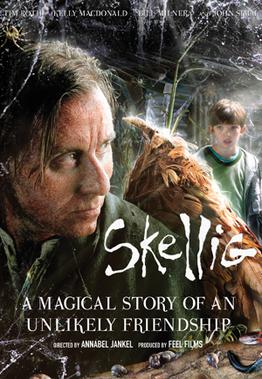
The Golden Treasury of English Songs and Lyrics is a popular anthology of English poetry, originally selected for publication by Francis Turner Palgrave in 1861. It was considerably revised, with input from Tennyson, about three decades later. Palgrave excluded all poems by poets then still alive.

Rose O'Neal Greenhow was a famous Confederate spy during the American Civil War. A socialite in Washington, D.C., during the period before the war, she moved in important political circles and cultivated friendships with presidents, generals, senators, and high-ranking military officers including John C. Calhoun and James Buchanan. She used her connections to pass along key military information to the Confederacy at the start of the war. In early 1861, she was given control of a pro-Southern spy network in Washington, D.C., by her handler, Thomas Jordan, then a captain in the Confederate Army. She was credited by Jefferson Davis, the Confederate president, with ensuring the South's victory at the First Battle of Bull Run in late July 1861.
Tactical or battlefield intelligence became vital to both sides in the field during the American Civil War. Units of spies and scouts reported directly to the commanders of armies in the field, providing details on troop movements and strengths. The distinction between spies and scouts was one that had life or death consequences: if a suspect was seized while in disguise and not in his army's uniform, he was often sentenced to be hanged. A spy named Will Talbot, a member of the 35th Battalion, Virginia Cavalry, was left behind in Gettysburg after his battalion had passed through the borough on June 26–27, 1863. He was captured, taken to Emmitsburg, Maryland, and executed on orders of Brig. Gen. John Buford.

The parish of Trinity Church has three separate burial grounds associated with it in New York City. The first, Trinity Churchyard, is located in Lower Manhattan at 74 Trinity Place, near Wall Street and Broadway. Alexander Hamilton, Albert Gallatin, and Robert Fulton are buried in the downtown Trinity Churchyard.

Alexander Robey Shepherd, was one of the most controversial and influential civic leaders in the history of Washington, D.C., and one of the most powerful big-city political bosses of the Gilded Age. He was head of the DC Board of Public Works from 1871 to 1873 and Governor of the District of Columbia from 1873 to 1874. He is known, particularly in Washington, as "The Father of Modern Washington."
Aaron Van Camp was an espionage agent for the Confederate States of America during the American Civil War. He and his son Eugene B. Van Camp were members of the Rose O'Neal Greenhow Confederate spy ring, which in 1861 was broken up by Allan Pinkerton, head of the newly formed Secret Service.

William Slocum Groesbeck was an American lawyer and politician who served one term as a U.S. Representative from Ohio from 1857 to 1859.
The works of J. M. Barrie about Peter Pan feature many characters. The numerous adaptations and sequels to those stories feature many of the same characters, and introduce new ones. Most of these strive for continuity with Barrie's work, developing a fairly consistent cast of characters living in Neverland and the real-world settings of Barrie's stories.

Skellig is a 2009 British fantasy film directed by Annabel Jankel, and starring Tim Roth and Bill Milner. The screenplay by Irena Brignull is based on David Almond's novel of the same name.
Michael Farquhar may refer to:

Frances Elizabeth Lupton was an Englishwoman of the Victorian era who worked to open up educational opportunities for women. She married into the politically active Lupton family of Leeds, where she co-founded Leeds Girls' High School in 1876 and was the Leeds representative of the North of England Council for Promoting the Higher Education of Women.
Ishbel Ross was an American newspaper reporter, novelist, and nonfiction writer. In a writing career spanning six decades, Ross wrote numerous biographies of prominent women, with her best-known work being the first substantial history of women journalists.

The Hamiltons of the United States are a family of Scottish origin, whose most prominent member was Alexander Hamilton (1755/57–1804), one of the Founding Fathers of the United States. Their ancestors and relations in Scotland included the Lairds of Kerelaw Castle in Stevenston, North Ayrshire, of the Cambuskeith branch of Clan Hamilton.
The 2014 New Year Honours in New Zealand were appointments by Elizabeth II in her right as Queen of New Zealand, on the advice of the New Zealand government, to various orders and honours to reward and highlight good works by New Zealanders, and to celebrate the passing of 2013 and the beginning of 2014. They were announced on 31 December 2013. In March 2023, the appointment of Lieutenant Colonel Duncan Roy as a Member of the New Zealand Order of Merit, not previously made public for security reasons, was published.
Catherine Virginia Baxley was a Confederate spy during the American Civil War. Baxley worked with infamous spy Rose Greenhow were imprisoned on December 30, 1861, and deported back to the confederate states in 1862. Later, Baxley continued being a blockade runner for the Confederacy during the civil war. She was arrested again while getting off a boat from Baltimore, Maryland and became a union prisoner. She was one of the first women confined in the Old Capital Prison, Washington, D.C. from February 24-July 2, 1865 where she was transferred after originally being held at Fort Greenhow. Like John Surratt, Baxley was a courier and carried letters across the union blockade.
Alexander Stuart-Hill was a Scottish portrait and landscape artist who lived in Paris who was engaged to Princess Louise of Battenberg before her marriage to King Gustaf VI Adolf.








